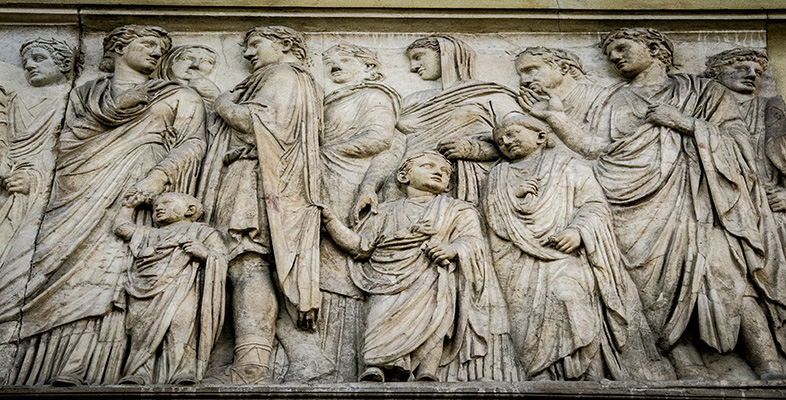Philosophy
This is yet another essentially literary source, so we can be brief. In fact, as in the case of history, its distinction from literature is anything but cut and dried. The only reason we mention it here separately is because we want to make it explicit that almost everything we have said for literature holds for philosophy too. Many varieties of philosophy aim to find absolute truths. In this respect, philosophy is less concerned with particular periods and places than is, for instance, historiography. You may study what the Roman philosopher Seneca had to say about the ‘right’ life, some of which we can empathise with even now. He didn't try to say anything specifically historical about the Classical world. At the same time, though, Seneca had close ties with the emperor Nero. Moreover, he, like everyone else, was shaped by the times he lived in. Thus philosophy, like literature, can be used as a source for exploring the Classical world, yet it can also be studied as part of our contemporary world since we can still ask some of the same philosophical questions that were asked in the ancient world, and of course reason in similar ways.
